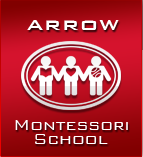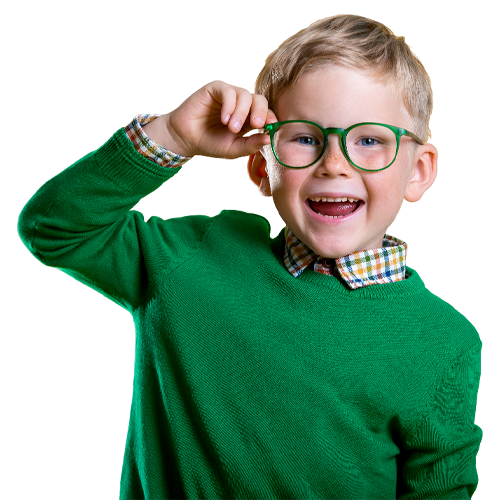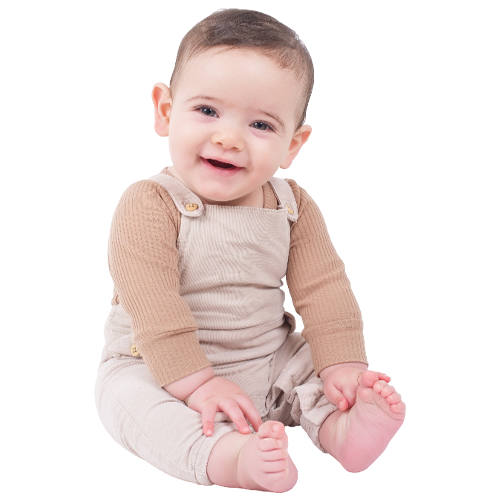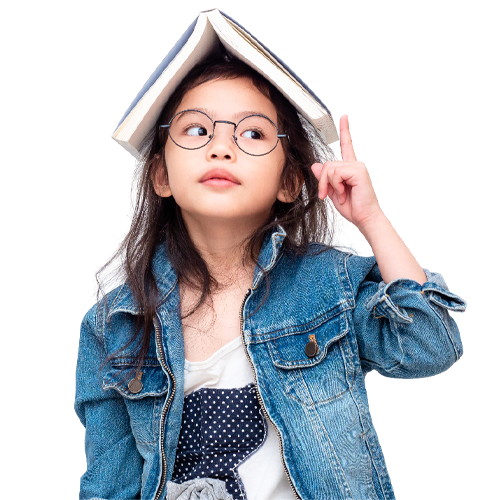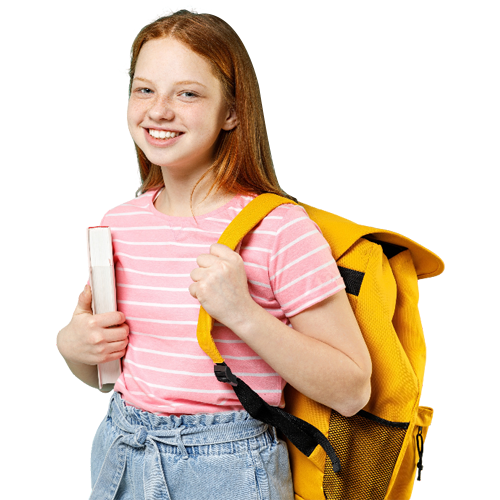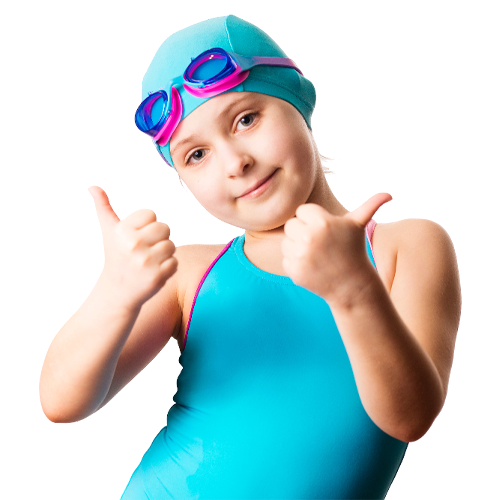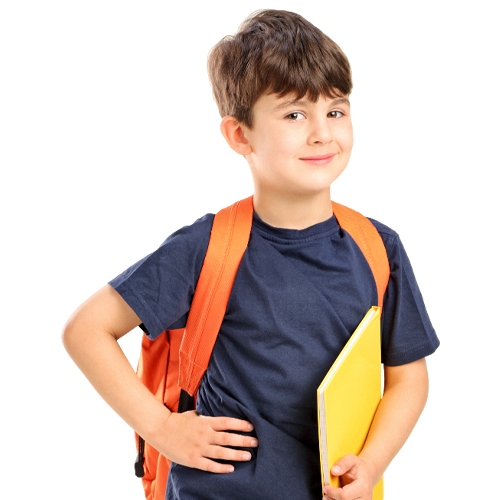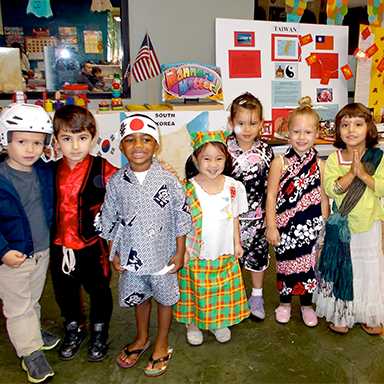Preschool-K Program
Our Programs
Infant Toddler
Preschool-K
Elementary
Middle School
Swim
Summer
Montessori Preschool - Kindergarten Program
Primary 2 to 6 years - The Absorbent Mind
Dr. Montessori identified a young child's unique aptitude for learning as the “absorbent mind,” frequently compared to a sponge absorbing information from the environment. This quick process is evident in the way in which a two year old learns their native language, without formal instruction and without the conscious, tedious effort in which an adult must make to master a foreign language. Acquiring information in this way is a natural and delightful activity for a young child who employs all their senses to investigate interesting surroundings. Our Montessori preschool - kindergarten program will give your child a head start on life.
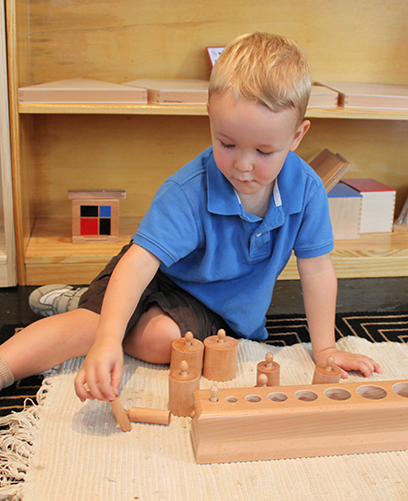
The effortless ability to acquire certain skills and abilities that correspond to a child's development are called “sensitive periods,” by Maria Montessori. Most of the observed sensitive periods are involved with the child's senses, the learning tools. From birth children are spontaneously interested in their surroundings and they gradually make order from them. This spontaneous interest and inclination toward order is the basis of the Montessori method. Based on these characteristics, Dr. Montessori developed an environment that allows the child to develop to his or her fullest potential.
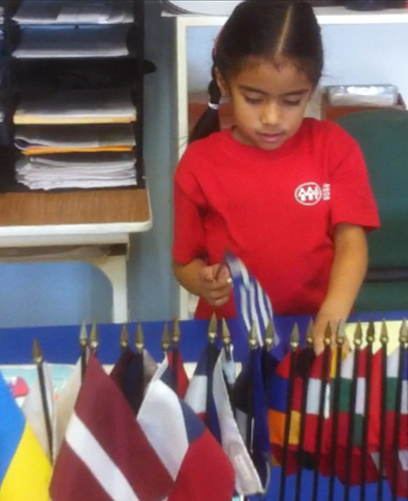
A young child is attracted to activities that give them independence and control of their own lives. Special Montessori materials enable your child to tie, button, snap, and use many other fastening devices. These are achieved through preschool games, preschool activities, kindergarten games, preschool crafts and much more which are all included in our Montessori preschool - kindergarten program.The purpose of these exercises is to develop concentration and attention to detail as your child follows a regular sequence of actions, finishing each task and putting away all materials before going on to another activity. Another important need of the young child is to develop their muscles and coordinate their movements through such practical life exercises as sweeping, polishing, carrying and pouring water, and washing a table. These activities provide the very foundation on which the child approaches more intricate academic exercises that they will encounter in elementary and middle school.
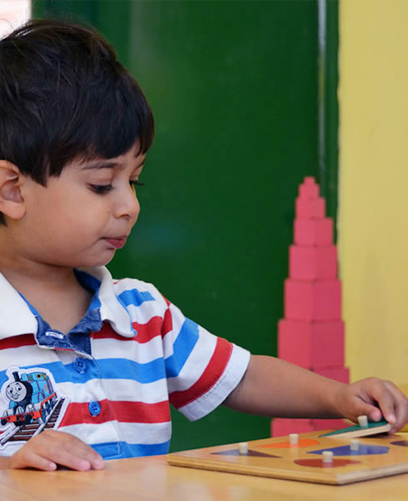
Sensorial materials in the Montessori preschool and kindergarten classrooms are designed to sharpen and enhance the senses of the young child and enable them to understand the many impressions they receive. Each of the sensorial materials isolates one defining quality such as color, shape, weight, texture, size, sound, or smell. For example, sound boxes are all the same size, shape, color, and texture, but differ only in sounds produced after a child shakes them.Other sensorial materials include geometric solids, smelling jars, color tablets, temperature bottles, sandpaper letters, baric tablets, cylinder blocks, and much more. The preschool and kindergarten activities help the child to distinguish, to categorize and to relate new information to what they already know. The child finds a sense of order in these materials and acquires the joy of learning that their environment has order. The child’s intellect is trained to make order out of a multitude of experiences, which is the learning process.
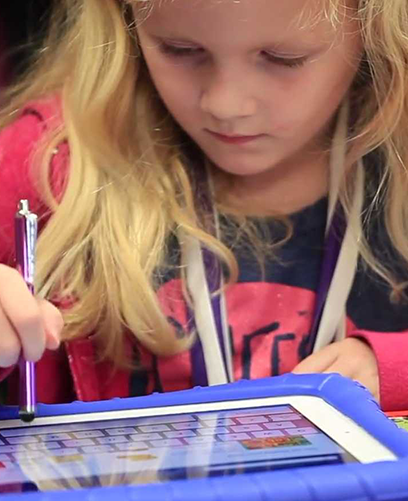
The materials for mathematics introduce the concept of quantity and the symbols for the numbers 1 through 10. The Montessori preschool and kindergarten math introduce a new way to learn math that is well received by the kids. The quantity is introduced by a series of rods, which the child can count and compare. From there children match sets of symbol cards to the rods to learn new numbers. Using a variety of beads and symbol cards, the child becomes familiar with the numbers as a decimal system including concrete experiences with the operation of addition, subtraction, multiplication and division. These exercises not only teach the child to calculate, but they provide a deep understanding of how numbers function. Our children learn concrete mathematical concepts and the materials lead them to the abstract, so that their understanding has substance. Because of the concrete nature of the materials, the child is able to work with basic concepts of fractions, geometry and algebra. The toddler education in mathematics is unique and has proven to be successful with students and they actually end up enjoying math.
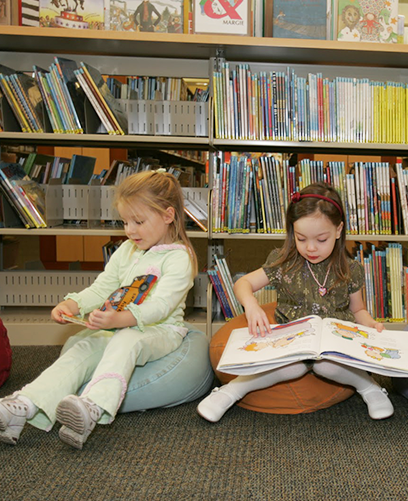
According to Dr. Maria Montessori, the evolution of language begins with the infant’s unique capacity to absorb fragments of language, which serve as a basis for their development. The child first discovers that sounds have meaning, and then they isolate parts of speech. Finally, children grasp the use of sentences.The constant assimilation of language results in a sudden expansion of the vocabulary. In the Montessori Preschool - Kindergarten program, the child learns language naturally, taken automatically from their environment. The work of the parent and the teacher is to expose children to the equivalent forms of written language, which they learn through the same general pattern of development. The Montessori preschool – kindergarten child begins reading when they’re ready and learning progresses at the child’s own pace. Their experiences in practical life and sensorial education serve as a preparation for this. The sandpaper letters provide a phonetic basis for reading, and the child’s sensitivity to touch is enhanced by these letters. Not only is sensitivity to sounds and shapes enhanced, but muscles are trained for when writing begins. The child builds up their database of words through storytelling, conversation, and many other exercises. These activities serve as preparation for the time when the child assimilates what they know and begin writing all by themselves.
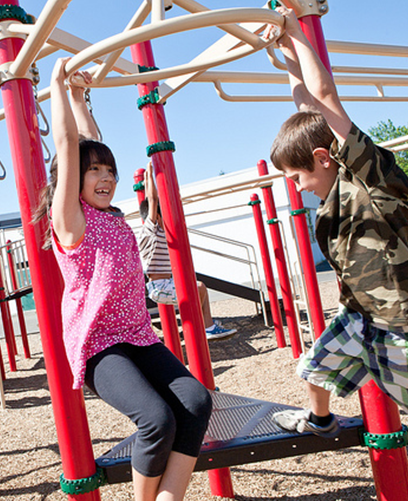
The Montessori Method introduces grammar, geography, geology, biology, and history to children between the ages of three and six. The reason is that at this age, children can joyfully absorb many difficult concepts if they meet them in concrete form. The common stumbling blocks in the middle school and elementary grades can be exciting if they are presented to youngsters at an earlier age, when they enjoy manipulating with their hands.In a Montessori school, a unit or fraction is not simply a number on a paper; it is something tangible. A verb is not just a word on a paper; it is something your child can cut out. Students can pour water around an island or form a square with five rows of five beads each. The materials that make these concepts tangible for your child will serve as touchstones in their memory for many years, to clarify abstract terms when they meet them again and again in future learning situations. Kindergartners and preschoolers have never had so much fun while learning organically!
